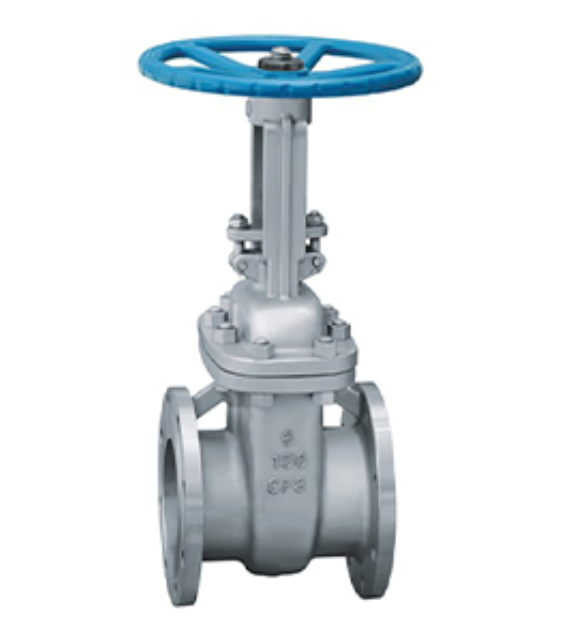Wholesale Stainless Steel Check Valves for Reliable Fluid Control Solutions
Understanding Wholesale Stainless Steel Check Valves Benefits and Applications
In various industrial applications, the choice of valves can significantly impact system performance, efficiency, and reliability. Among the various types of valves, stainless steel check valves have gained considerable popularity due to their robustness and functionality. This article delves into the world of wholesale stainless steel check valves, exploring their benefits, applications, and why they are a crucial component in numerous systems.
What are Stainless Steel Check Valves?
Check valves are mechanical devices that allow fluid to flow in one direction while preventing backflow. They are essential in systems where backpressure or reverse flow could potentially cause problems or damage equipment. Stainless steel check valves specifically are made from high-grade stainless steel, known for its corrosion resistance, strength, and durability.
Benefits of Stainless Steel Check Valves
1. Corrosion Resistance One of the most significant advantages of stainless steel check valves is their ability to withstand corrosive environments. Unlike other materials such as brass or plastic, stainless steel is less prone to rust and degradation, making it ideal for applications involving water, chemicals, or gases.
2. Durability Stainless steel check valves are built to last. The strength of stainless steel allows these valves to handle high pressures and temperatures without deformation or failure, ensuring long-term operation and minimal maintenance needs.
3. Hygienic Properties In industries such as food and beverage, pharmaceuticals, and biotechnology, hygiene is paramount. Stainless steel is easy to clean, non-toxic, and does not leach harmful substances, making stainless steel check valves a suitable choice for these applications.
5. Cost-Effectiveness While the initial investment in stainless steel check valves may be higher than that of other materials, their durability and longevity often translate into lower overall costs. Minimizing the need for replacements and maintenance translates into significant savings over time.
wholesale stainless steel check valves

Applications of Wholesale Stainless Steel Check Valves
1. Water and Wastewater Treatment Stainless steel check valves are widely used in water treatment plants to prevent backflow and protect pumps and other equipment from damage. They are also commonly employed in stormwater management systems.
2. Oil and Gas Industry In oil and gas applications, stainless steel check valves are essential for maintaining pressure and preventing backflow in pipelines. Their ability to withstand harsh conditions makes them suitable for use in both upstream and downstream processes.
3. Food and Beverage Industry Hygiene is crucial in food processing and beverage manufacturing. Stainless steel check valves are used to ensure that no contaminants enter the product stream and that processes run smoothly by preventing backflow.
4. Pharmaceuticals In the pharmaceutical sector, cleanliness and sterility are non-negotiable. Stainless steel check valves are utilized in various processes, including drug manufacturing and packaging, to ensure that products remain uncontaminated.
5. HVAC Systems In heating, ventilation, and air conditioning (HVAC) systems, these valves help manage the flow of refrigerants and other fluids, ensuring efficient operation and preventing leaks and backflow.
The Importance of Wholesale Supply
Purchasing stainless steel check valves in wholesale quantities can lead to several advantages for businesses. Wholesale pricing often narrows the cost per unit, allowing companies to invest more in quality and performance without breaking the bank. Additionally, sourcing from wholesalers can lead to consistent availability and shorter lead times, ensuring that companies can maintain their operations without interruptions.
Conclusion
Wholesale stainless steel check valves represent a critical component across various industries. Their corrosion resistance, durability, versatility, and cost-effectiveness make them an ideal choice for applications requiring reliable flow control. As industries continue to evolve and demand more efficient systems, the significance of these valves will only increase, making them crucial for future developments. By understanding their benefits and applications, businesses can make informed decisions that enhance their operational efficiency and product quality.
-
The Key to Fluid Control: Exploring the Advantages of Ball Valves in Industrial SystemsNewsJul.09,2025
-
The Versatile World of 1, 2, and 3 Piece Ball ValvesNewsJul.09,2025
-
Stainless Steel Ball Valves: The Ideal Choice for Efficient Flow ControlNewsJul.09,2025
-
Optimizing Fluid Control with Ball Float ValvesNewsJul.09,2025
-
Manual Gate Valves: Essential for Control and EfficiencyNewsJul.09,2025
-
Everything You Need to Know About Butterfly ValvesNewsJul.09,2025
-
The Versatility of Wafer Type Butterfly ValvesNewsJul.08,2025




